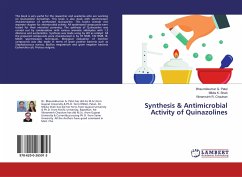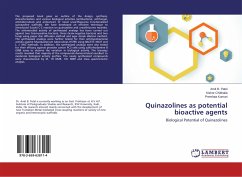Quinazoline derivatives have received a great interest as anti-cancer agents since the discovery of Gefitinib. From about 1995 to 2006, the anticancer quinazoline panorama has been dominated by the 4-anilinoquinazolines as tyrosine kinase inhibitors. Interests in quinazolines as anticancer agents have been further increased after the discovery of thymidylate synthase inhibitors Raltitrexed and Thymitaq. The aim of this book is to provide a brief overview of synthesis and pharmacology of quinazoline based anti-cancer agents. The first chapter provides a brief review of conventional and targeted anti-cancer agents and also elaborates on the special place held by quinazoline derivatives in the current anti-cancer chemotherapy. The second chapter is aimed at providing a review of reported synthetic strategies and pharmacological properties of clinically approved quinazoline kinase inhibitors. The third chapter covers the reported synthetic strategies and information on pharmacology of various quinazoline kinase inhibitors which are currently under clinical trials. The fourth chapter covers the literature on anti-cancer activity of quinazoline derivatives reported in the past decade.








